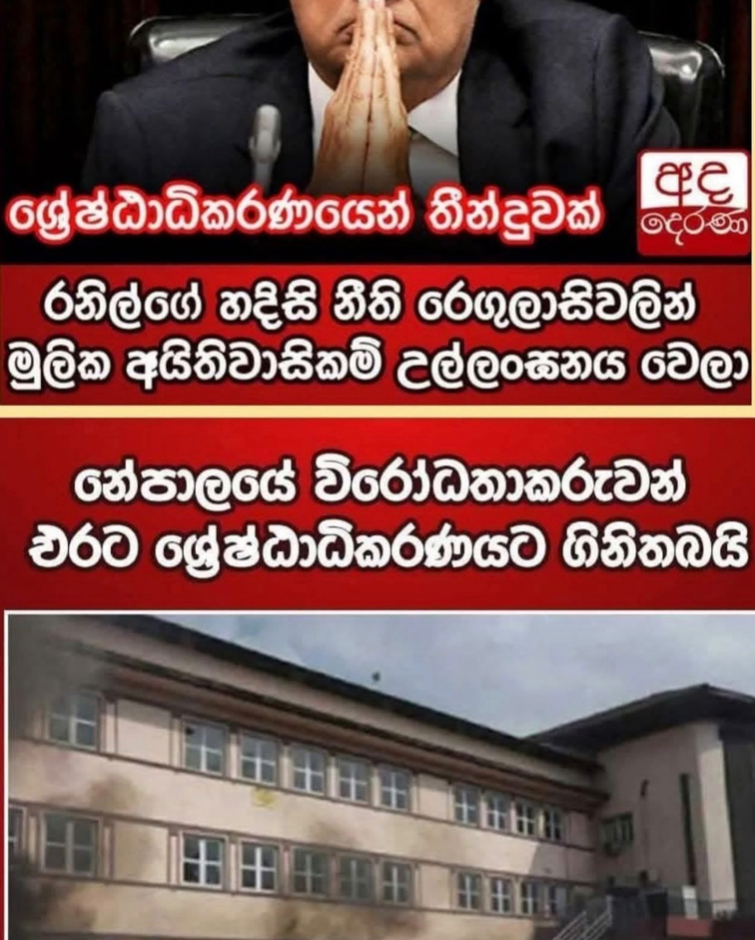By Adolf
Nepal’s recent history demonstrates the dangers of a judiciary drawn too deeply into politics. In times of crisis, the Supreme Court of Nepal has often wavered between defending constitutional principles and succumbing to political currents, leaving its credibility damaged. For Sri Lanka, this is a cautionary tale: our courts must resist the temptation of political entanglement while remaining the guardians of justice.

The protesters burnt the Supreme Court
The protests in Sri Lanka for example ledultimately to a change of the President. The Supreme Court held later that the Executive’s attempts to suppress the violent demonstrators violated their fundamental rights. The acting President’s intervention to prevent Parliament from falling underscored the delicate balance between upholding the Constitution and maintaining stability. This 3 Bench judgment with one Judge dissenting reaffirmed that no one, not even the highest office in the land, is above the law and that fundamental rights remain inviolable, even amid political crises.Yet, as Nepal tragically teaches us, one principled judgment is not enough. Consistency, courage, and clarity of reasoning must be the hallmarks of a credible judiciary. Public confidence is the Court’s greatest asset. If verdicts appear politically driven or inconsistentand decided by personal bias, the authority of the judiciary erodes rapidly.
Credibility
Our judges would do well to take heed of Lord Denning, who insisted that the law must serve justice and not be trapped in rigid technicalities. Especially when individual freedoms clash with executive power, the judiciary must act decisively, fairly, and transparently. Sri Lanka’s judiciary, led by figures such as Chief Justice Neville Samarakoon, Justice Mark Fernando, and CJ Sarath N. Silva, has at critical junctures risen above fear or favour to defend liberty and democracy. Yet, to remain the ultimate guardian of our Constitution, it must avoid Nepal’s mistakes of delay, inconsistency, politicization, and allow no room for personal biases. The Court’s role is not to arbitrate power struggles but to protect the people’s rights and uphold constitutional sanctity. As Lord Denning reminded us: “Justice must not only be done, but must be seen to be done.” Nepal stands as a wake-up call for our judiciary.
